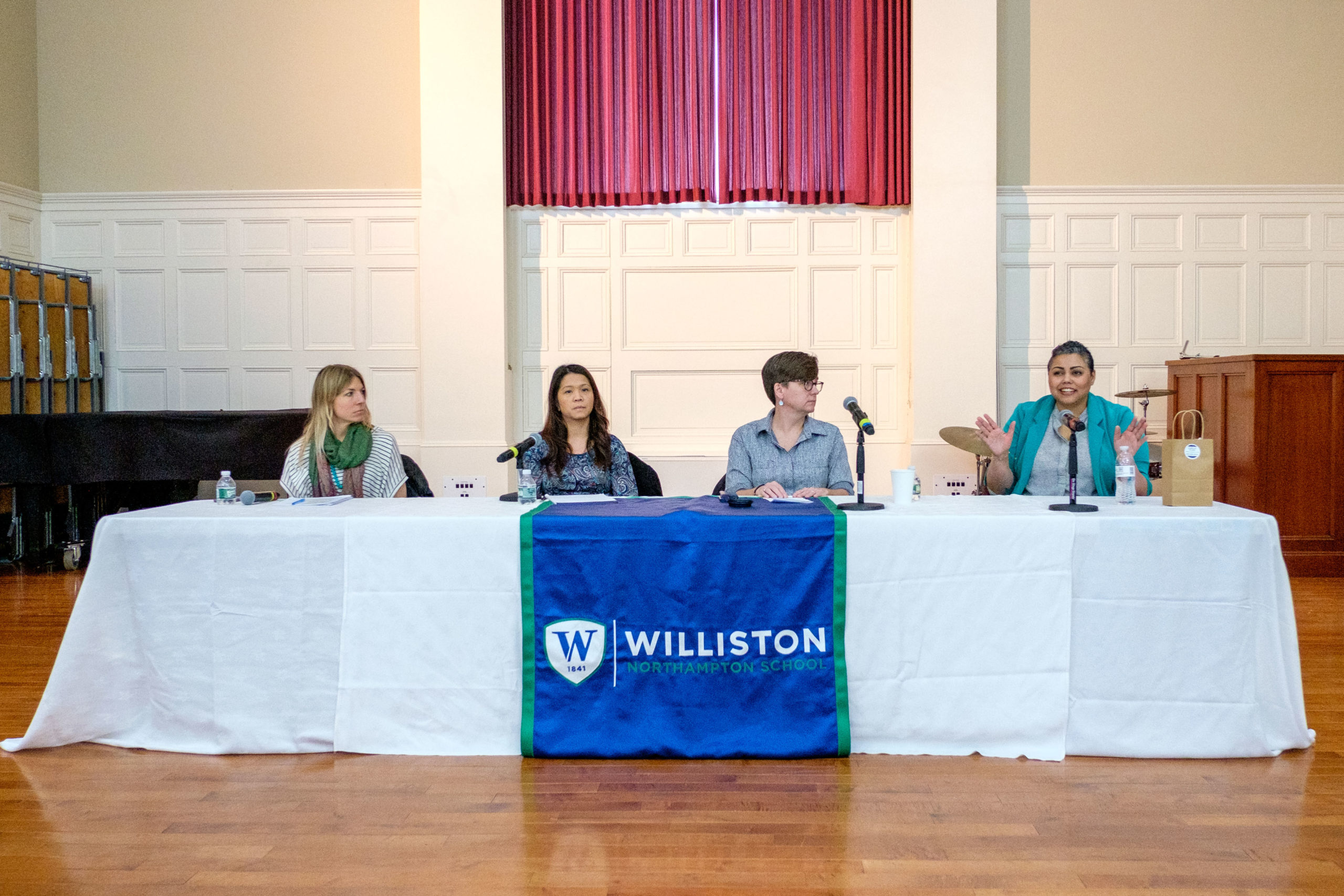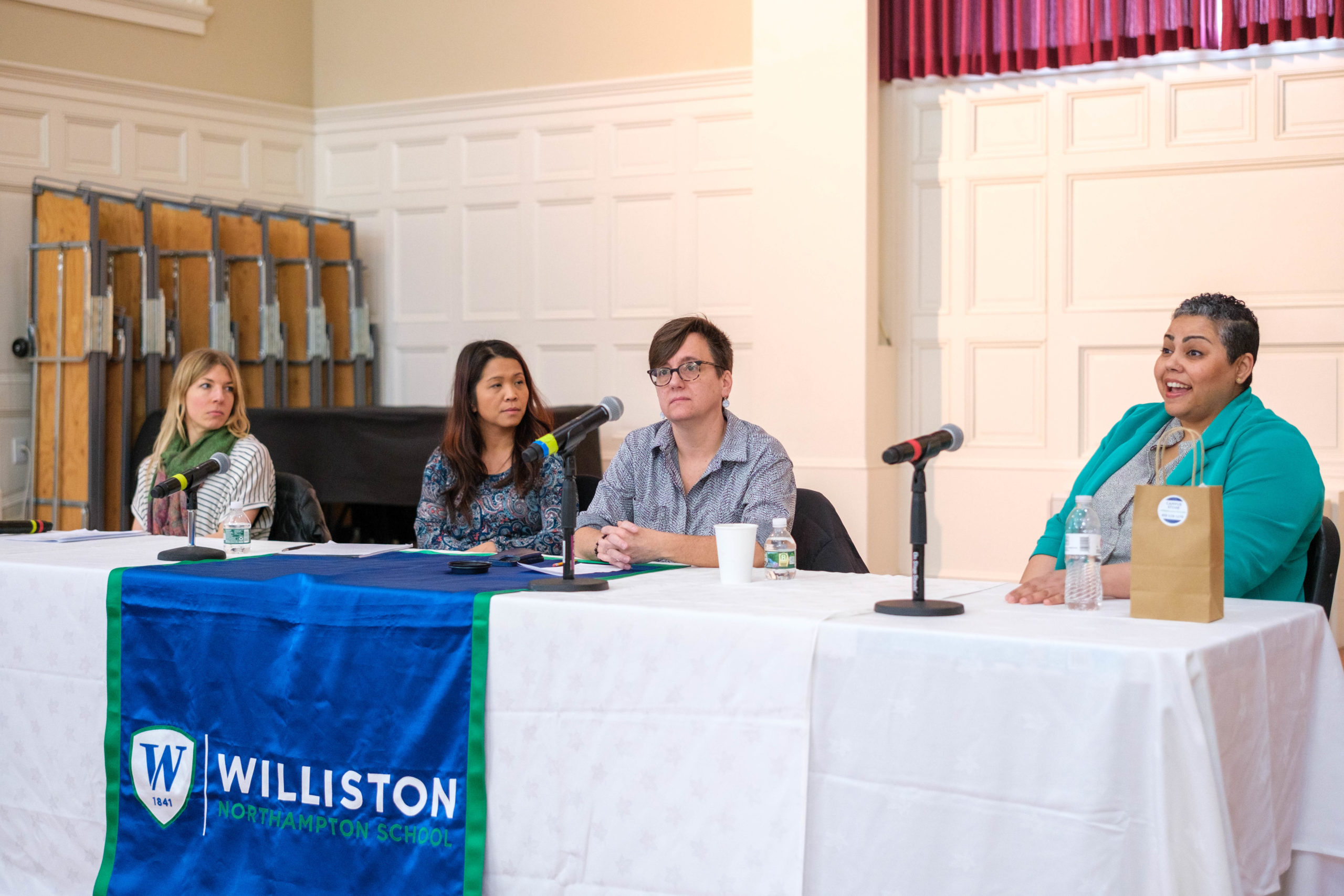
For Upper School assembly last Friday, the Williston community welcomed three local mental health clinicians to the Chapel for a Q&A about mental resiliency, and how we can better train ourselves to meet challenging moments.
The three guests were: Alice Barber, a psychotherapist for children and teens; Mayrena Guerrero, a license mental health counselor and founder/CEO of Colorful Resilience LLC; and Bao Chau Heiskala, a therapist and co-founder of New Path Counseling. The hour-long discussion was moderated by School Counselor Anne Zager.
After brief introductions, Zager then asked the three panelists a range of questions about resiliency—including defining the word.
“Resilience, to me, is the ability to bounce back from really difficult events in your life, the ability to keep yourself moving through hard times,” Barber said, “and recognize your points of agency, or your moments when you can have control over things, even when it feels like things are out of control.”
Guerrero referred to resilience as a muscle—one that we are constantly training and working with. Being resilient, the panelists said, also isn’t about being “perfect.”
“Resilience is not perfection, by any means,” Heiskala said, “it’s a process.”
One important piece of advice given that everyone in the Chapel—students and faculty—can put to use came from Barber.
“The message I want to give and want all of you to hear clearly is that intense emotional experiences … are all temporary states,” Barber said. “One of the difficult things is when you are in the state of fear or sadness, your brain makes you think that it’s going to last forever and ever and ever. … That’s actually not true.”
The assembly came at an opportune moment on campus. With T2 wrapping up in early March and end-of-trimester tests looming, the end of February and beginning of March can be stressful.
Meg Colenback, the Director of Mental Health Counseling at Williston, reminded students after the event that self-care is an important aspect of building up resiliency. She offered a suggestion of taking five minutes before studying or test-taking to ground oneself and clear the mind.
In addition, Williston also offers counseling for students—either individually, or in a group. No matter the method, though, the intent is the same: to help Williston students build resiliency and meet the challenges they face.
“You have a goal, there’s a reason why you are here—because you are trying to accomplish something great and big with your lives,” Guerrero said. “Every day when you wake up, you are exercising resilience.”

